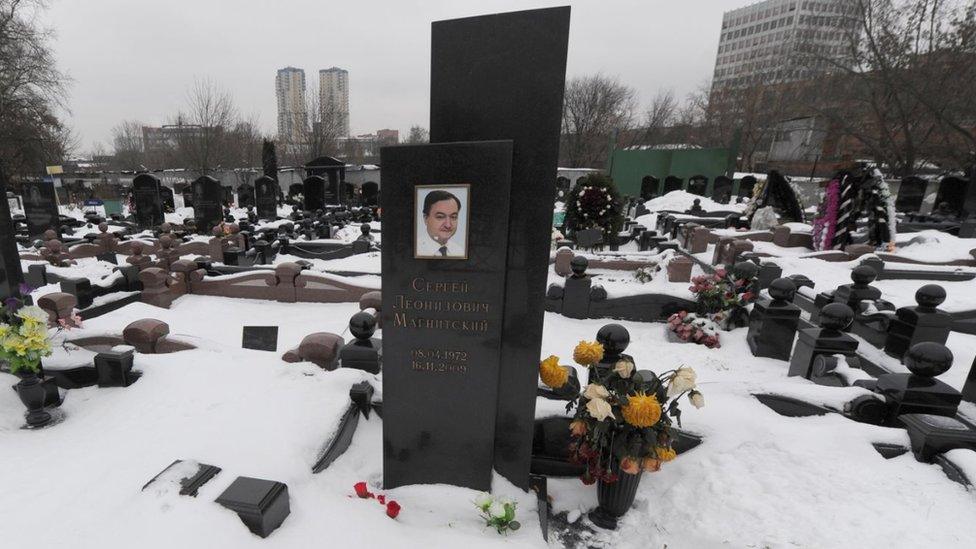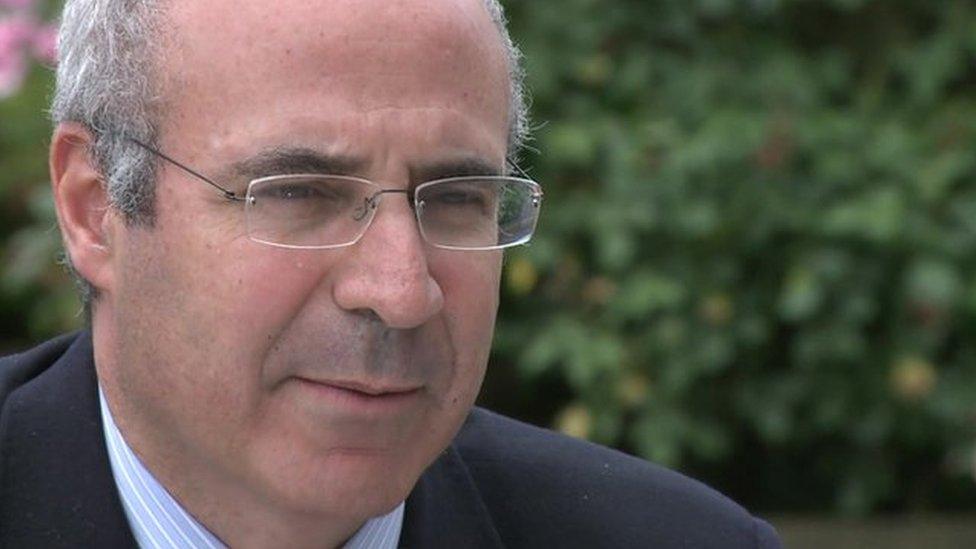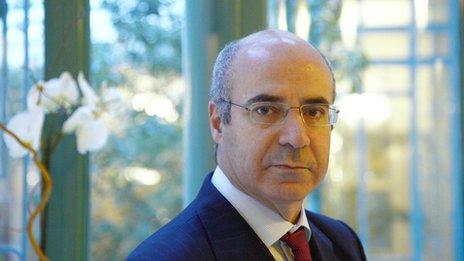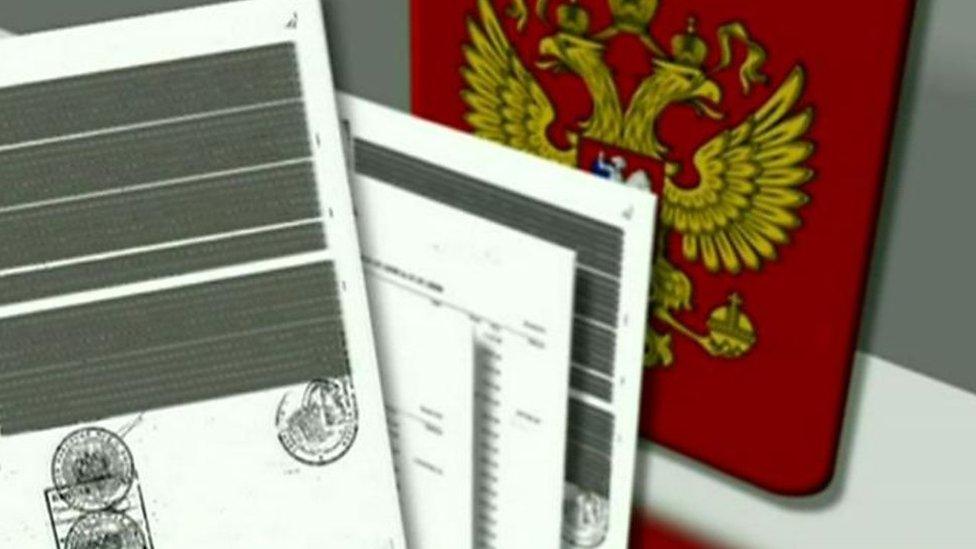Police probe UK links to Magnitsky money
- Published

Sergei Magnitsky died in prison while awaiting trial
Police are investigating how £6.6m from a Russian organised crime group has been allegedly traced to a banking firm in the UK, the BBC has learned.
US court papers have linked some of the so-called "Magnitsky money" - a £150m tax fraud scheme in Russia - to Renaissance Capital.
The information has been handed to police by Hermitage Capital, the original victim of the Russian fraud.
City of London Police say an active investigation is under way.
Sergei Magnitsky was an auditor at a Moscow law firm when he discovered what he said was a massive fraud by Russian tax officials and police officers.
After reporting the alleged theft of $230m (£150m) to the authorities, he was himself detained in 2008 on suspicion of aiding tax evasion and died in custody in November 2009.
He acted as a legal adviser for London-based Hermitage Capital Management (HCM), where colleagues insist the case against him was fabricated to make him halt his investigations.
Despite his death Russian prosecutors decided to put him on trial - a case dismissed as a "circus" by his family and by HCM founder Bill Browder, who was himself tried in absentia.
The US Justice Department highlighted the UK connection to suspected illicit funds after investigating how proceeds of the Russian tax fraud were allegedly laundered into luxury apartments in New York.
US court documents, seen by the BBC, show alleged wire transfers from the Russian organised crime group going into the UK bank account of Renaissance Capital - a Russian investment banking firm, which has offices in London.
The American investigation led to $6m being recovered by the US attorney for New York.
The files given to British police highlight a number of "money laundering red flags" over Renaissance Capital's activities, although the US authorities have not suggested Renaissance played a role in, or were aware of, the original Russian tax fraud.
Renaissance Capital has been contacted by the BBC but has not provided a response.
'Dirty money'
Mr Browder, who has campaigned for authorities to investigate who benefitted from the fraud and where the Magnitsky money went, says the outcome in the US should now prompt UK authorities to act.
"This should show other law enforcement agencies around the world that this is a solid case which leads to big financial recoveries and it's worthwhile to pursue," he said.
"It should show the City of London Police that the information led to a significant financial recovery for the US and there is a strong argument for them to devote resources to fight a much larger possible discovery of money laundering in the UK."
The US attorney's office of New York said the organised Russian crime group, along with corrupt Russian government officials, "engaged in a broad pattern of money laundering in order to conceal the proceeds of the fraud scheme".

Mr Browder says the outcome in America should now prompt UK authorities to act
It said in a complex series of transfers through shell corporations, the $230m from the Russian treasury was laundered into numerous accounts in Russia and other countries.
Mr Browder and other anti-corruption campaigners have urged authorities to do more to clamp down on suspected "dirty money".
He said corrupt foreign officials must be prevented from enjoying lavish lifestyles in places like London and New York with the suspected proceeds of crime.
"It's a scary thing for the Russian government to see that their money is not safe in the West," he said.
A new Criminal Finances Bill was passed in the UK in April 2017 giving authorities stronger powers to freeze assets where suspected illicit wealth is flowing into the UK.
Duncan Hames from campaign group Transparency International said it was now time for authorities to "turn up the heat".
"The strongest laws are only paper without a genuine commitment to enforce them. We are looking to the police to actively investigate money laundering and it is vital they are properly resourced to do so."
- Published22 March 2017

- Published21 February 2017

- Published11 July 2013
- Published10 December 2013

- Published25 April 2017
